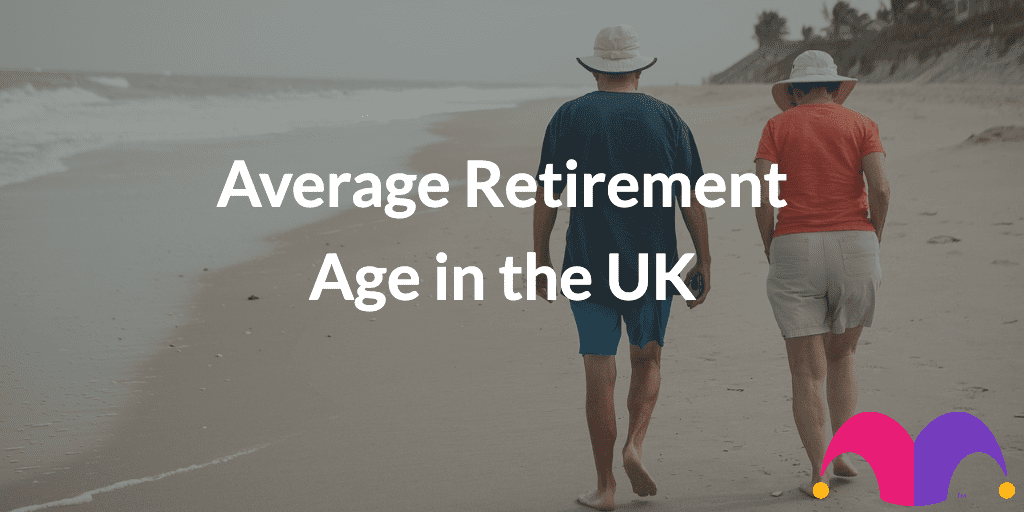Summary of findings
- The average retirement age in the UK is just under 65 years old.
- In 2021, the typical age for giving up work fell slightly for both men and women.
- Women usually give up work earlier than men despite needing a larger pension pot due to a longer life expectancy.
- A significant number of workers living in London can expect to be working into their 70s.
- One in 10 workers in the East Midlands usually give up work before they hit 60.
- The UK’s average retirement age sits modestly compared to other OECD countries.
- South Africa has the lowest average retirement age, while South Korea has the highest.
Understanding retirement in the UK
Before exploring the average retirement age in the UK, it’s worth knowing that everyone is free to work for as long as they wish. That’s because Britain has no forced retirement age. That said, it’s fair to say that much of the population would like to leave the workforce at some point.
The age at which you’ll be able to retire will depend on the size of your pension. That’s because it will have to support you for the duration of your non-working days.
In the UK, there are two types of pension: your workplace pension and the state pension. Workplace pensions can typically be accessed from age 55 onwards, though there are differences across schemes. The state pension, meanwhile, has a set age that you must reach before you’re eligible to receive it. This is currently 66 for both men and women, though it’s rising to 68 for those born after 6 April 1978. However, due to the UK’s ageing population, the state pension age will likely continue rising in future.
So, now we’ve covered the types of pensions, let’s take a look at the typical retirement age in the UK.
Average retirement age in the UK
The average retirement age in the UK is 64.55.
According to the Office for National Statistics, there’s every chance this figure will increase in future given the recent shift towards flexible working as a result of the Covid-19 pandemic. That’s because the government’s independent statistics provider suggests that increased home working could enable older workers to remain in the workforce for longer.
Average retirement age by gender
The average retirement age for men is 65.1, while the average retirement age for women is 64. This tells us that women typically leave the workforce 13 months earlier than men.
This is despite women typically needing larger pension pots given they’re expected to live longer than men. In the UK, the average life expectancy for a man is 84 years and for a woman, it’s 86 years.
Interestingly, data from 2021 suggests there has been a 0.2%-0.3% decrease in the average retirement age across both genders. This suggests the pandemic has encouraged workers to bring forward their retirement plans.
Average retirement age by region
According to the most recent Wealth and Assets Survey by the Office for National Statistics, the average retirement age in the UK can vary considerably by region.
For example, 19% of those in the South West of England can expect to continue working beyond the age of 70. This compares to just 10% of those living in the North East. This contrast may be explained by the differences in the cost of living between these regions.
Meanwhile, 10% of those living in the East Midlands give up work before 60, compared to just 4% in both Wales and the South West of England.
The North East has the highest number of people (64%) that can expect to retire at the typical retirement age of 65-69. This compares to just 55% for workers in the South East.
UK retirement age compared to other countries
According to statistics from the Organisation for Economic Co-operation and Development (OECD), the average retirement age in the UK of 64.55 years old compares modestly to the rest of the world.
For example, in South Africa, workers typically retire once they hit 60 years old. Meanwhile, across the English Channel, French workers expect to retire at 60.8 years old.
In Greece, workers also expect an early retirement, with the average Greek leaving work at 60.85 years old. Meanwhile, those living in Belgium, Poland and Spain typically retire at 61. For the USA, retirement typically takes another year, with the average person entering post-work life aged 62.
At the other end of the spectrum, Mexico has one of the highest expected retirement ages. There, workers can expect to give up work at 68.9 years old.
Meanwhile, the usual retirement age in Japan is 69.95 years old. Interestingly, the OECD country claiming the highest typical retirement age is Japan’s neighbour, South Korea. Workers in the Asian nation can expect to work until they are 72.3 years old.
Methodology
We have endeavoured to use only high-quality primary sources for this research, and we have cited sources with each graph. Key sources include the Office for National Statistics and the Department for Work and Pensions.
Sources
- ONS: Living longer: impact of working from home on older workers
- OECD: Ageing and Employment Policies – Statistics on average effective age of retirement
- ONS: Expected retirement age of adult population by region: Great Britain, July 2016 to June 2017
- Department for Work & Pensions – Working after State Pension age
- Second State Pension age review: independent report call for evidence (Average age of exit from the labour market)
- Retirement age in the UK: When can you retire and get your state pension?
